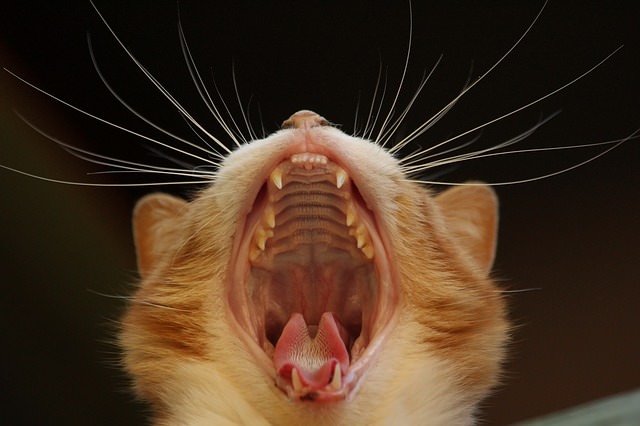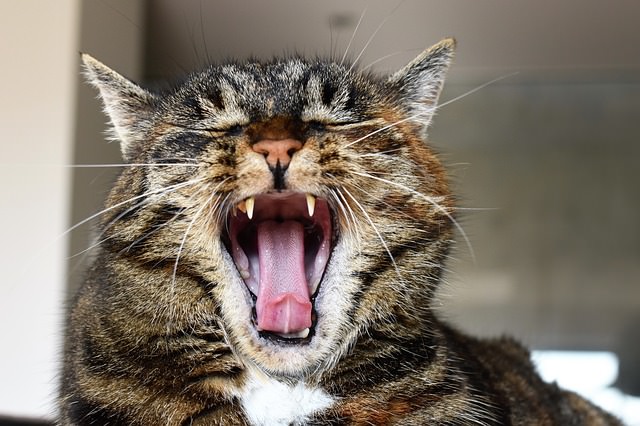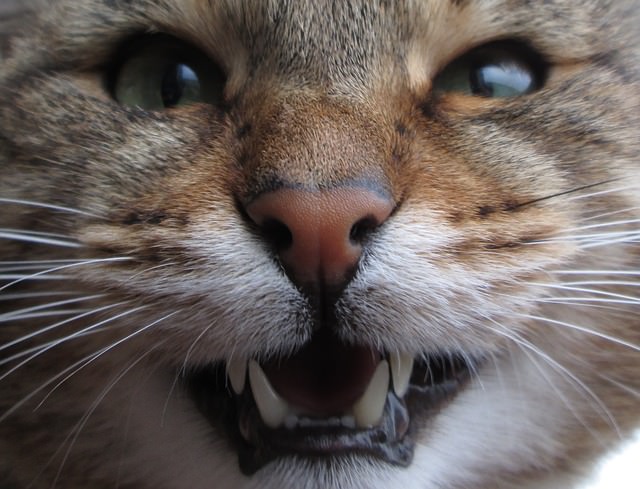We know that teeth are important to our carnivorous cats, but there are a few specific things we should keep in mind. A little knowledge and diligence on our part can really make a huge difference to our cats, since it’s up to us to make sure they stay as healthy as possible.
Below are 5 facts about your kitty’s teeth that are not only interesting, they can help you keep your cat’s mouth in tip-top shape.
1. Cats don’t have many teeth.
A cat’s dental formula shows that he has only 30 permanent teeth. Comparatively, a dog has 42 teeth – 12 more than cats.
With just enough teeth, your feline cannot afford to lose any. Every tooth plays an important role and we have to take good care of them all.
2. Each tooth contains a nerve.
Each tooth in any mammal has a pulp on the inside. The nerve goes right down the pulp. It is covered by a substance called dentin and the white enamel that you can see covers and protects the dentin and the pulp. Damage to the tooth in the form of inflammation or injury can cause the nerve to fire and will hurt very badly. Your cat cannot tell you that it hurts, so you have to be aware and make sure that you never skip a vet visit so your vet can check the teeth.
3. Since your cat is a carnivore, her teeth are specific.
Cats have evolved as obligate carnivores, meaning they must eat meat to survive. In fact, cats fed a diet without meat will not thrive. They need the amino acids found in meat and powdered amino acid supplements are not a good enough substitute; they can be poorly metabolized by a cat’s system.
Deficiencies in amino acids can cause cats to become blind and even suffer from heart disease. Your cat’s teeth are specifically designed to chew meat. They have no grinding teeth and are poorly evolved to even chew plant material. Make sure your cat eats a diet that she can swallow safely without grinding molars.
4. Cats can suffer from some fairly unique dental diseases.
Every cat lover knows that cats are unique. They have special metabolisms and special dietary and environmental requirements, and their teeth are no different.
They have their own common pathology in their teeth. One of these is called tooth resorption. These lesions can affect the enamel, the dentin, and eventually erode away the crown of the teeth.
The most important things to know about resorptive lesions are 1) they are very painful and 2) your cat may hide the pain from you, which brings us to our final point…
5. Cats hide dental pain.
Cats recognize their vulnerability in the world and do not want to flag themselves as weak prey by showing pain. Although cats will drool or paw their faces sometimes when they have dental pain, more often than not, they will completely conceal the issue. It is up to those that love them to prioritize a veterinary visit at least once a year, even when you think that your cat is fine.
Cats are special and that is part of why we love them. They have specific needs, and so do their teeth! Make certain that you include your veterinarian in your cat’s dental health and ask about things you can do at home to help head off problems.
Do you love learning about cats? I love sharing about them. Find me on Facebook by clicking here.




